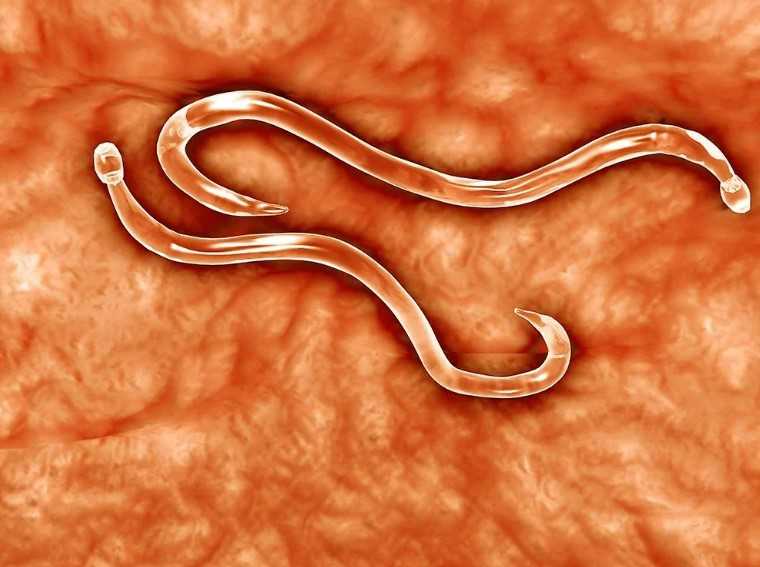The hookworm is a roundworm about one centimeter long. Two types of hookworms occur in Europe, but only Uncinaria stenocephala is found in cats in the Netherlands. It is most commonly seen in shelter cats or strays, but it can also occur in house cats. The Uncinaria worm mainly feeds on the surface tissue of the intestinal wall.
Foxes often shed hookworm eggs in their feces. These eggs develop in moist soil and are then ingested by cats, allowing them to enter the intestines. The larvae travel through the bloodstream to the lungs, where they are coughed up and swallowed again. When they reach the intestines a second time, they attach to the intestinal wall. There, the hookworm matures into an adult worm.
Hookworm infections are often mild but can also cause severe intestinal inflammation. Southern European hookworms cause more intense symptoms, such as dark, mucous-covered stools and anemia.
To prevent a severe hookworm infection, we recommend regular fecal testing. If the test shows your cat is infected with hookworms, we will provide a personalized treatment plan. This way, your cat's health is the priority and unnecessary deworming can be avoided. Feel free to contact our team if you have any questions; we are happy to help.
